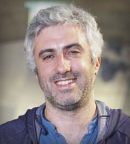ASCO’s CancerLinQ and Owkin recently announced a new research collaboration to use artificial intelligence (AI) to analyze real-world oncology data with the aim to understand why some cases of metastatic non–small cell lung cancer (NSCLC) are resistant to first-line immunotherapy.
Using data from CancerLinQ® Discovery, one of the largest and most-diverse real-world oncology databases that include de-identified data from more than 6 million patients with cancer, as well as de-identified data from a European research site, Owkin will deploy its proprietary federated learning algorithms to identify possible predictive factors that could inform the understanding of why some patients with NSCLC respond poorly to immunotherapy. The study will also compare patient characteristics, treatment factors, and clinical outcomes of patients with advanced NSCLC.
Federated learning, a decentralized machine learning approach that trains machine learning models with multiple data sources, maintains privacy and ownership while allowing participants to benefit from a larger amount of data than their own. Instead of gathering data on a single server, the data remain locked on servers, as the algorithms and only the predictive models travel between the servers.

Sean Khozin, MD, MPH

Thomas Clozel, MD
“Unlocking the full potential of real-world data to advance cancer care and research requires new modes of data sharing at scale and applying next-generation analytical methods such as AI to complex multimodal data sets, both of which are key features of this exciting research collaboration,” said Sean Khozin, MD, MPH, Chief Executive Officer of CancerLinQ. “Federated learning allows a safe and secure method of sharing data and collaborating across silos and continents as one global cancer research community focused on advancing discoveries that can improve the lives of patients with cancer.”
“The next generation of medical breakthroughs will be unlocked by the application of artificial intelligence to vast amounts of rich patient data,” said Thomas Clozel, MD, Cofounder and Chief Executive Officer of Owkin. “We are excited to use our federated learning software to safely and securely analyze CancerLinQ’s diverse patient data. We are excited to work together to make discoveries that can contribute to improving treatment for millions of lung cancer patients across the world.”
© 2022. American Society of Clinical Oncology. All rights reserved.

